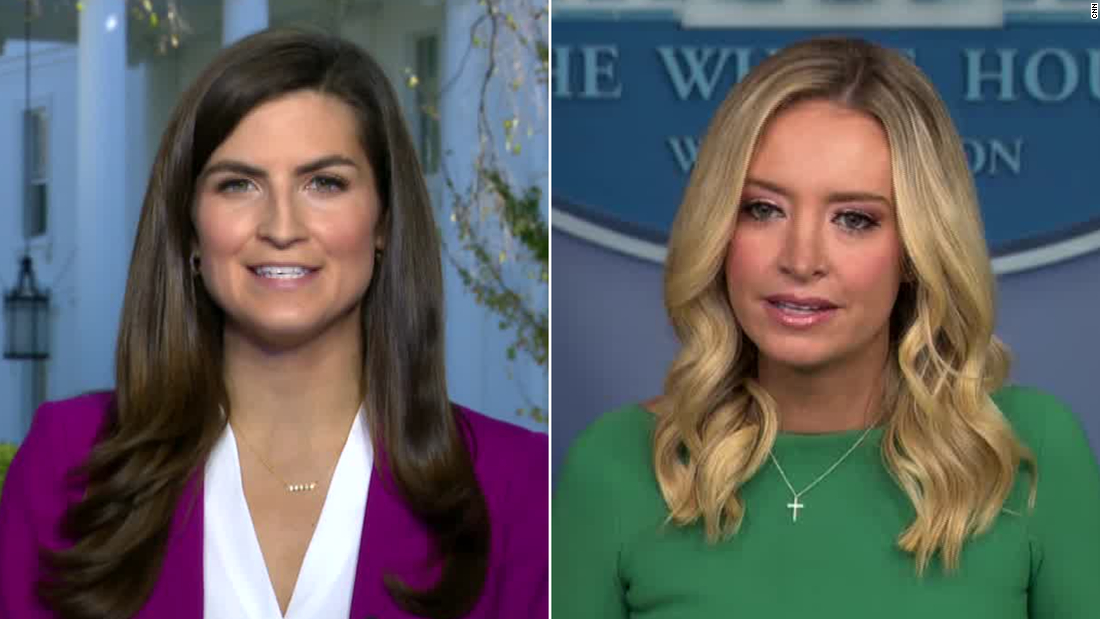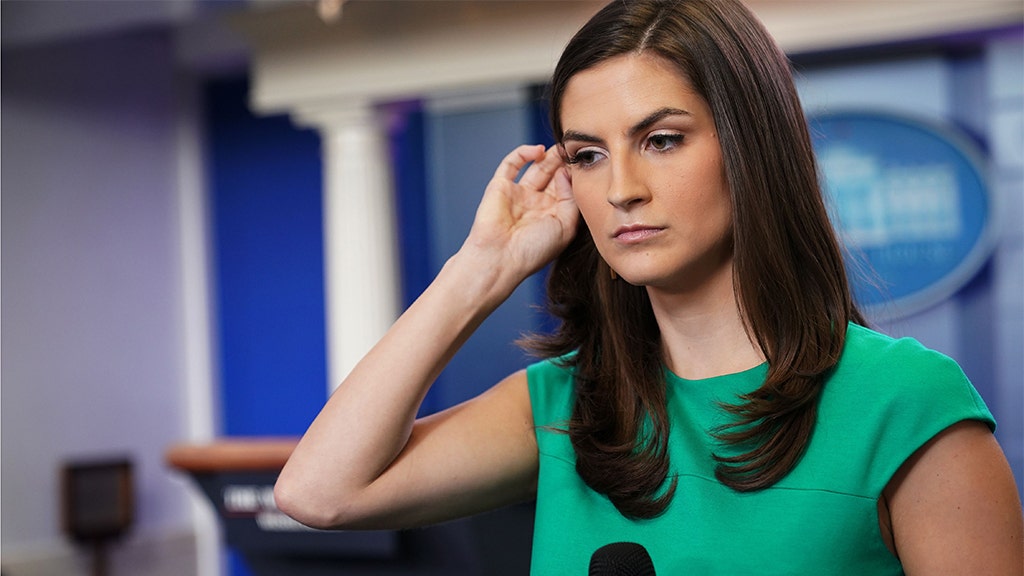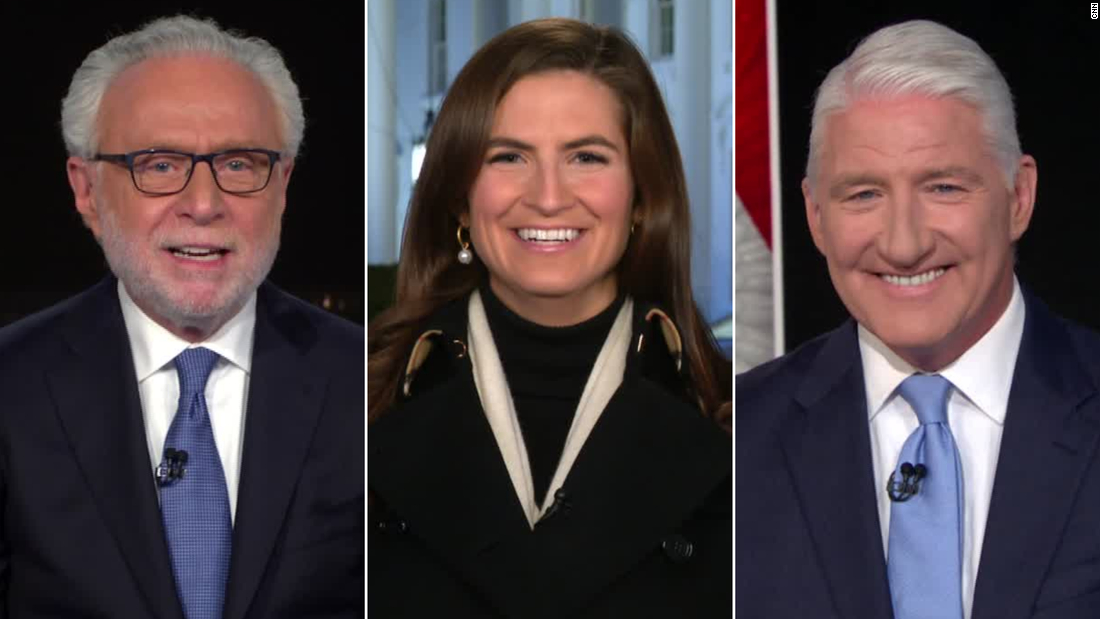Kaitlan Collins: Challenging Gender Norms In Media
Kaitlan Collins, a prominent political correspondent, has been a staple in the media landscape, known for her incisive reporting and fearless questioning. However, her appearance has sparked discussions that extend beyond her professional achievements, leading some to comment that "Kaitlan Collins looks like a man." This observation invites a deeper examination of gender perceptions, societal norms, and the impact of media representation on public figures. In an age where gender fluidity is gaining recognition, it's essential to explore how these conversations shape the narrative around women in journalism.
As a journalist, Collins has carved a niche for herself, gaining respect for her work while simultaneously facing scrutiny regarding her physical appearance. The phrase "Kaitlan Collins looks like a man" may stem from traditional expectations of femininity and masculinity, which often unfairly place individuals into rigid categories. This leads us to question: What does it truly mean to look like a man or a woman in today's society? Are such perceptions merely reflections of outdated stereotypes, or do they hold weight in the way we evaluate individuals in the media?
In exploring this topic, we can unravel the complexities of gender identity and representation in the media. As Collins continues to make waves in her field, her experience serves as a microcosm of the broader challenges faced by women who defy conventional beauty standards. By examining her biography and career, we can gain insights into her journey and the societal factors that contribute to perceptions like "Kaitlan Collins looks like a man."
- Unraveling The Life And Legacy Of Helena Kiedis
- Understanding Shacarri Richardsons Journey A Look At Her Life And Children
Who is Kaitlan Collins?
Kaitlan Collins is a well-known political correspondent, currently serving as the chief White House correspondent for CNN. Born on April 7, 1992, in Prattville, Alabama, she graduated from the University of Alabama with a degree in political science. Collins rose to fame as a political reporter, gaining recognition for her sharp interviewing style and ability to dissect complex political issues.
What is Kaitlan Collins' Professional Background?
Collins began her career at The Daily Caller, where she initially covered breaking news and political events. Her tenacity and skill in reporting quickly caught the attention of major networks, leading to her hiring by CNN in 2017. Since then, she has become a prominent figure in political journalism, known for her ability to hold powerful figures accountable.
| Personal Details | Biography |
|---|---|
| Name | Kaitlan Collins |
| Date of Birth | April 7, 1992 |
| Birthplace | Prattville, Alabama |
| Education | University of Alabama (Political Science) |
| Occupation | Political Correspondent |
| Network | CNN |
What Makes Kaitlan Collins Stand Out in Journalism?
Collins is distinctive in her field for several reasons. Her unique interviewing style, which blends assertiveness with genuine curiosity, sets her apart. She often tackles challenging subjects head-on, pushing back against political figures who attempt to dodge tough questions. This commitment to journalistic integrity has earned her a loyal following and respect among colleagues.
- Nikki Catsouras Wreck A Tragic Tale Of Loss And Controversy
- Sophie Rain Takes On Spiderman Video Part 2 Unleashed
Why Do Some People Say "Kaitlan Collins Looks Like a Man"?
The phrase "Kaitlan Collins looks like a man" has surfaced on social media and various platforms, often as a critique of her appearance. This commentary can be attributed to conventional beauty standards that dictate how women should look. In a male-dominated field, women like Collins may be scrutinized more heavily for their physical appearance, leading to comments that reflect outdated stereotypes.
How Can We Reframe Our Understanding of Gendered Appearance?
As society progresses, it's crucial to challenge the binary perspective of gender and appearance. The notion that someone "looks like a man" or "looks like a woman" can be reductive and perpetuates harmful stereotypes. Instead of focusing on physical traits, we should celebrate individuals for their talents, contributions, and capabilities.
- Embrace Diverse Representations: Recognizing the spectrum of gender identities and expressions can foster a more inclusive environment.
- Focus on Professionalism: Evaluating individuals based on their skills and accomplishments rather than their appearance can shift the narrative.
- Encourage Open Dialogues: Promoting conversations about gender and appearance in media can raise awareness and challenge stereotypes.
What Impact Does Media Representation Have on Gender Norms?
Media representation plays a significant role in shaping societal perceptions of gender. When prominent figures like Kaitlan Collins challenge traditional norms, they pave the way for future generations to redefine what it means to be a woman in media. By embracing diversity in appearance and expression, the media can contribute to a more equitable landscape.
How Can We Support Female Journalists Like Kaitlan Collins?
Supporting female journalists involves recognizing their contributions while advocating for a more inclusive media environment. Here are some actionable steps:
- Celebrate Achievements: Acknowledge the hard work and accomplishments of female journalists, highlighting their impact on society.
- Challenge Stereotypes: Speak out against derogatory comments about appearance and advocate for respectful discourse.
- Promote Gender Equity: Support initiatives that aim to achieve gender parity in journalism and media representation.
Conclusion: Redefining Beauty and Gender in Media
In conclusion, the comment "Kaitlan Collins looks like a man" underscores the ongoing struggle against rigid gender norms and societal expectations. As we navigate these conversations, it's essential to recognize the significance of representation and the impact it has on how we perceive individuals in the media. By embracing diversity and challenging stereotypes, we can cultivate a more inclusive environment that values individuals for their talents rather than their appearance. Kaitlan Collins, through her work and presence, exemplifies the changing landscape of journalism, reminding us that beauty and professionalism can come in many forms.
Article Recommendations
- Aubreigh Wyatts Dad A Journey Of Love And Support
- Uncovering The Secrets What Did Aubreigh Wyatt Notes Say



Detail Author:
- Name : Johnathan Sipes
- Username : eloy02
- Email : mariam.adams@bernier.biz
- Birthdate : 1992-01-23
- Address : 932 Kutch Harbor Shieldschester, VA 70749
- Phone : 1-941-314-5729
- Company : Hettinger, Jacobs and Yundt
- Job : Order Filler OR Stock Clerk
- Bio : Et cum quidem magni. Laudantium dolores sed fuga.
Socials
twitter:
- url : https://twitter.com/hintzs
- username : hintzs
- bio : Est quia soluta veritatis velit. Dolorum repudiandae est maiores nemo sequi dolor iste. Dolor quia facilis similique dolorem.
- followers : 3304
- following : 2001
tiktok:
- url : https://tiktok.com/@hintz2003
- username : hintz2003
- bio : Quae ea sint ipsum deserunt. Omnis aut omnis ipsa totam.
- followers : 4203
- following : 2634
facebook:
- url : https://facebook.com/simeon_hintz
- username : simeon_hintz
- bio : Sequi expedita et ut tempora. Et quia numquam natus voluptatem tenetur quia.
- followers : 2548
- following : 563
linkedin:
- url : https://linkedin.com/in/shintz
- username : shintz
- bio : Et dolorem ab quis commodi.
- followers : 3214
- following : 227
instagram:
- url : https://instagram.com/hintz1978
- username : hintz1978
- bio : Beatae laborum fugiat voluptatem facere et. Nulla aliquid aut est commodi sed quia.
- followers : 5134
- following : 1813